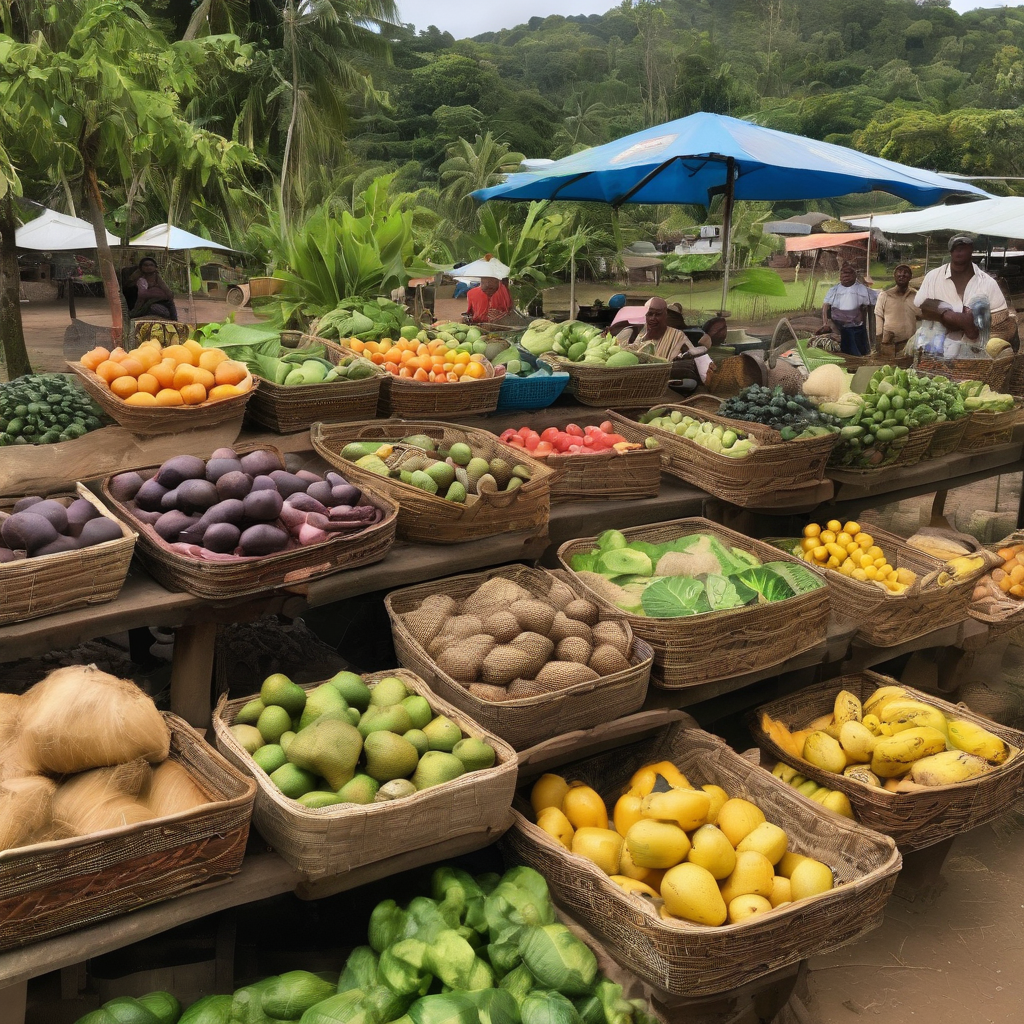Bula vinaka shoppers! As we embark on our weekly grocery trips, it’s easy to focus solely on sales or how to stretch our ingredients. However, there exists a pressing and broader issue that impacts households throughout the Pacific—food security.
Food security refers to the availability of sufficient, safe, nutritious, and affordable food needed for a healthy lifestyle. It aims to ensure that our families, as well as future generations, are always able to access meals, particularly during challenging times.
In the Pacific, our islands confront unique difficulties, primarily our dependency on imported foods—everything from rice and flour to canned goods. Fluctuations in global prices or shipping delays can immediately influence what is available on our shelves.
Another serious concern is climate change. Cyclones, floods, and drought disrupt local agriculture, reducing farmers’ ability to provide fresh produce at reasonable prices. This scenario stresses the importance of supporting local food systems. By purchasing from local farmers and markets, we not only enjoy fresher produce but also empower Fiji’s capacity for self-sufficiency.
Each purchase of staples such as rourou, dalo, tavioka, vudi, and lemons strengthens our agricultural community and keeps funds circulating locally. Additionally, everyone can contribute in smaller, yet impactful ways. Starting a backyard garden or growing a few herbs or vegetables can supplement our diets. Better food storage and meal preparation can also extend our groceries, reducing the need for imports.
Food security is a collective responsibility that requires engagement from shoppers, chefs, and land caretakers alike. By choosing local options, minimizing waste, and being conscientious about our purchases, we can create a more resilient food future.
Notably, Manoa Kamikamica recently highlighted these issues while delivering a keynote address during the World Food Forum 2025 and the Hand-in-Hand Initiative Investment Forum organized by the Food and Agriculture Organization (FAO) of the United Nations in Italy. He emphasized the Pacific’s innovative capacity grounded in community knowledge and cultural values, showcasing how traditional practices combined with modern technology can foster adaptive agricultural systems.
Kamikamica pointed out initiatives like the Digital Earth Pacific program, which utilizes satellite data to monitor environmental shifts and inform agricultural practices, thereby linking data to traditional methods like agroforestry and intercropping. He noted that stronger partnerships are essential in addressing the connection between climate impact and agriculture.
Furthermore, Kamikamica described the interconnectedness of ecosystems and the importance of elevating women, youth, and small enterprises in transforming agrifood systems in the Pacific—labeling them as vital to resilience and innovation in the region.
With the upcoming COP30 in Brazil, his message resonates louder than ever: the Pacific nations must not be seen merely as casualties of the climate crisis but rather as front-runners armed with solutions. Every decision we make regarding food—whether at our local markets or in our homes—contributes to the collective goal of ensuring that our communities can thrive today and tomorrow.
In these tumultuous times, embracing local food systems and sustainable practices offers a hopeful pathway. By supporting local agriculture, engaging in community food initiatives, and reducing waste, we fortify our future against the uncertainties of climate change, ensuring that our children never face hunger. Next time you shop, remember that your choices matter in creating a resilient and thriving Fiji.
